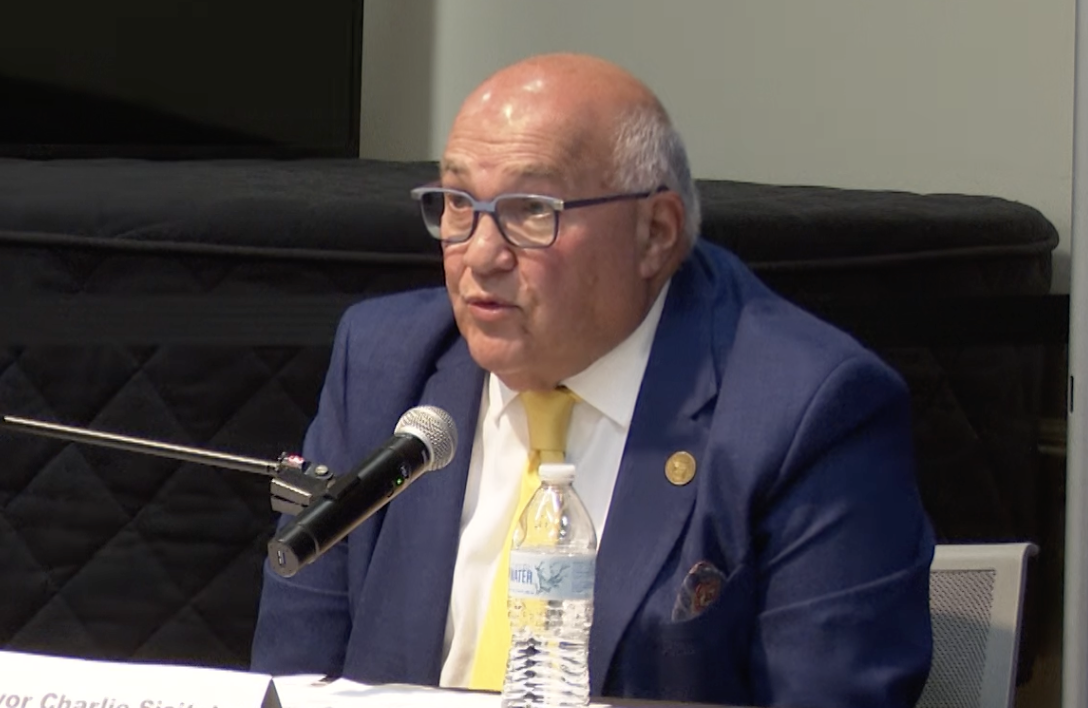Local legislators in Framingham discussed whether the City Council should be a body that can grant special permits for certain large scale projects.
FRAMINGHAM - Members of the Framingham City Council are considering whether the local legislative body should be added as a special permit granting authority for certain large scale projects within the city during their meeting on Thursday, September 18.
The amendments, which would be made to Framingham’s zoning codes if eventually approved by local legislators, would make the City Council a group that could grant permits for multifamily plans, mixed-use buildings and complexes, assisted living facilities, neighborhood cluster projects, and open space cluster developments. The total gross floor area for properties that would fall under the City Council’s authority through this power would be at least 75,000 square feet.
District 1 City Council member Christine Long believes that the proposal would connect residents across Framingham directly into these decisions through their at-large and district-specific councilors. She said it’s a “typical” measure for a municipality to adopt, adding that large projects like the ones outlined in this pitch should have input from City Councilors prior to approval.
“It just seems that at this point, with all of the pushback we’ve had on projects that come in or projects that get approved…I think that was some of the impetus of why this came about,” Long continued on Thursday.
Long believes that the threshold for providing a special permit should be high, requiring a unanimous or supermajority approval by the City Council. City Solicitor Kate Fallon Manupelli told the City Council that the special permitting authority is not meant to make the process of granting a permit easier or harder, since the role of this authority is to be unbiased in their assessments for land owners looking for developments within zones and standards that are already established—even if local leaders are familiar with a specific developer.
“You shouldn’t be making a decision on criteria that isn’t found in the zoning, that isn’t appropriate criteria—such as ‘I really don’t like her, she made a development in the other ward and it was terrible.’ You have to look at what’s before you and apply objective criteria and make an objective decision on it,” the solicitor explained.
Long was joined by At-Large City Councilor George King in approving of the idea. King believes it would be a worthwhile decision, adding that it gives the City Council an important role in local development plans.
“To me, it makes sense that we take the most important projects in the city and put them in front of (the City Council),” King told his colleagues.
“Otherwise, people say to us, ‘I don’t like this, I don’t like that,’ but we have nothing to do with it. The mayor appoints the Planning Board, so we’re going to cede all of that authority. The charter gives us the opportunity to take this authority.”
However, District 3 City Councilor Adam Steiner said he doesn’t think the proposal addresses major problems with development, specifically those surrounding transparency and the influence that developers have on those within the municipal government. He believes this authority could open the door to other City Council members to sway permit decisions one way or another in the future. Long retorted by saying that influence from developers will persist in whatever system Framingham leaders elect to set up, as developers could also hold influence over members of the Planning Board—who are ultimately nominated by the sitting mayor.
Michael Cannon of District 4 also raised his hesitations, contending that the City Council isn’t necessarily in the “business of doing this every week or every month.” He said the council might not be as tuned into permitting matters as members of the Planning Board would be, adding that he does not want this decision to be a “power grab” by the City Council. Long dismissed the idea of this special permit authority being an overstep by the body, and she also believes that City Councilors can learn more about developments going forward.
Cannon mentioned that he would be supportive of any amendments that would restrict campaign donations from developers to City Council candidates.
District 7’s City Council member Leora Mallach was unsure of the idea as well, as she believes it could set a bad precedent down the line and that it wouldn’t be a “good development policy.”
“Thoroughly looking at what the process is and what the community wants in that neighborhood or in the pieces: that, I think, is what our job is—not, at the very end, to come in and say, ‘Nope, this doesn’t fit in the character of our neighborhood,’” Mallach said.
The City Council will continue this discussion during their meeting on Tuesday, October 7.

About 23% of registered Framingham voters cast a ballot in 2025. Charlie Sisitsky defeated Geoff Epstein to win another term as mayor, while John Stefanini and Mary Kate Feeney won in their respective City Council races. Brandon Ward and Michael Cannon were reelected to the local legislative board, while Lorena Tovar and Brent Lewis were victorious in their School Committee bids. Changes to the city's Home Rule Charter received overwhelming support as well.